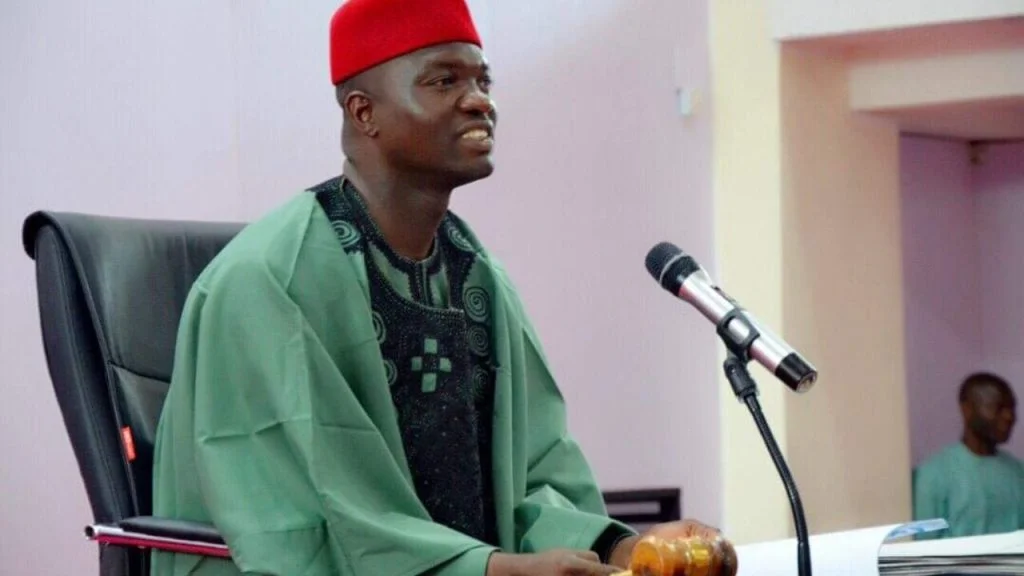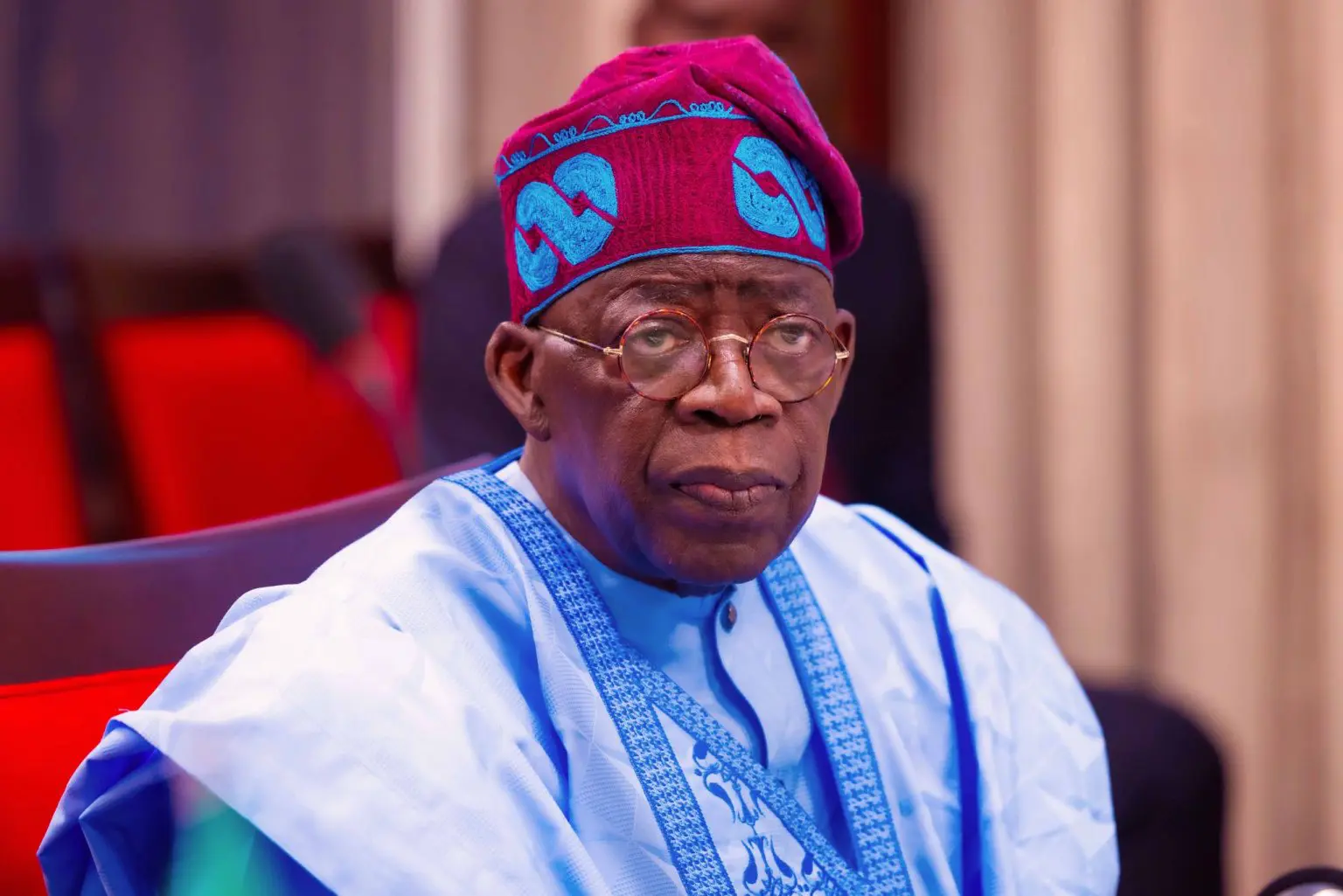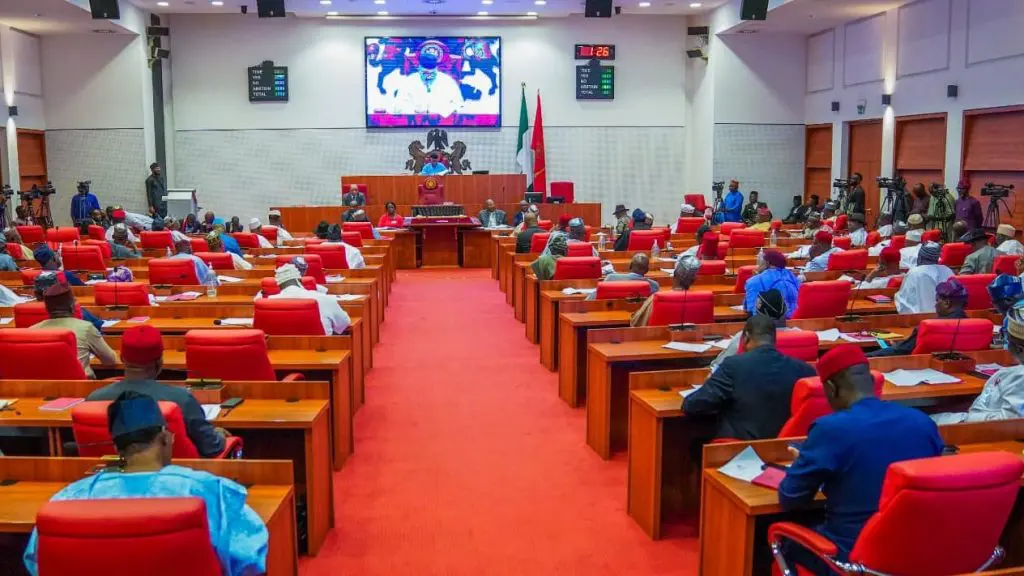News
Ebonyi: I didn’t reject PDP, APGA guber candidates in my government – Nwifuru

Ebonyi State Governor, Francis Nwifuru, refutes the claim of rejecting gubernatorial candidates Ifeanyi Chukwuma Odii of the Peoples Democratic Party (PDP) and Bernard Odoh of the All Progressives Grand Alliance (APGA), along with their supporters in his administration. The State Commissioner for Information and State Orientation, Jude Okpor, clarified this in a statement issued in Abakaliki on Saturday.
According to Okpor, the governor did not intend to withhold forgiveness, accommodation, or cooperation from his election challengers in court. He explained that the governor, in an honest and straightforward manner, recounted the challenges he faced during the litigations from the tribunal to the Supreme Court, where he ultimately emerged victorious.
Okpor emphasized that the governor expressed dissatisfaction with one of the candidates for serving a lawsuit notice a day after a meeting, considering it contradictory to values of integrity and reliability. Governor Nwifuru regretted the prolonged litigations brought to the government and people of the state and wished they had not occurred.
The commissioner clarified that the governor did not condemn opponents for seeking redress in courts of competent jurisdiction. Governor Nwifuru, a committed democrat, extended an olive branch to his opponents after winning the polls, which was rebuffed.
Despite the opposition’s refusal to cooperate, Governor Nwifuru made persistent efforts to reach out to them individually for the unity and development of the state. Okpor considered their decision to go to court a miscalculation but acknowledged that it brought an end to divergent interests, paving the way for possible collaboration for the state’s development.
Okpor urged Odii, Odoh, and other citizens to disregard any allegations suggesting that the governor rejected accommodating them or their supporters in his government. He called on everyone to dismiss such reports, emphasizing that they do not accurately represent the governor’s sentiments expressed during the meeting.
News
Tinubu secures $600m seaport infrastructure investment with shipping giant Maersk

President Bola Tinubu has successfully secured a $600 million investment from the Danish shipping and logistics firm A.P. Moller-Maersk to enhance current port infrastructure, aiming to facilitate increased container shipping services in Nigerian ports.
The Chairman of A.P. Moller-Maersk, Mr. Robert Maersk Uggla, revealed this decision during discussions with President Tinubu at the World Economic Forum Special Meeting on Global Collaboration, Growth, and Energy for Development in Riyadh, Saudi Arabia, on Sunday.
President Tinubu highlighted that this investment would complement the government’s ongoing $1 billion initiative for the reconstruction of seaports across both the eastern and western seaboards of Nigeria. He also stressed how it aligns with the administration’s efforts to modernize ports and automate port processes through the national Single Window project. This initiative aims to enhance trade facilitation, streamline import-export procedures, curb corruption, and enhance the efficiency and transparency of port operations in Nigeria.
Expressing gratitude for Maersk’s commitment to Nigeria’s economy, President Tinubu emphasized the country’s attractiveness for investment and assured of the government’s dedication to fostering a conducive business environment.
Mr. Uggla, in turn, reiterated Maersk’s longstanding engagement in Nigeria and its belief in the nation’s future, highlighting investments of over $2 billion in Nigerian ports and related activities. He underscored the potential for Nigerian ports to accommodate larger container ships, emphasizing the need to expand port infrastructure, especially in Lagos, to meet growing demand and reduce logistics costs.
Uggla emphasized Maersk’s eagerness to invest in Nigeria, envisioning the country as home to the best and largest port in Africa. He pledged to continue dialogue with Nigerian authorities to explore further investment opportunities.
News
Palestinian president raises alarm about possible Israeli attack on Rafah

Palestinian President Mahmoud Abbas raised an alarm on Sunday about a possible Israeli attack on the southern Gaza Strip city of Rafah.
Palestinian news agency, WAFA, said Abbas raised his concerns in a speech during a special meeting of the World Economic Forum hosted by Saudi Arabia
“If Israel invades the city of Rafah, where most of the people of the Gaza Strip gather, the biggest catastrophe in the history of the Palestinian people will occur, and they will be displaced outside the Gaza Strip.
“We called for an end to the aggression and to supply the population with the humanitarian supplies they need, and under no circumstances will we accept the displacement of Palestinians, whether from Gaza or the West Bank outside their homeland,” he stated.
Abbas also urged European countries to recognise the State of Palestine and recognise it as a full member state of the United Nations.
“There must be a political solution that brings together the Gaza Strip, the West Bank, and Jerusalem in an independent Palestinian state through an international conference. This is what we have called for since October 7, 2023, until this day,” he added.
Meanwhile, Abbas expressed his fears that Israel would displace Palestinians from the West Bank to Jordan by the end of the conflict in Gaza.
Earlier, on Thursday, Israeli Prime Minister Benjamin Netanyahu approved a plan for the ground operation in Rafah but did not allow the army to move yet.
Rafah has become the last refuge for more than 1.4 million Palestinians after their displacement from the northern and central Gaza strip in light of the ongoing violence between Hamas and Israel for more than six months.
CREDIT: DAILY POST
News
Senate explores policy options to mitigate impact of Naira depreciation

Concerned about the recent decline of the Naira against major foreign currencies, the Senate, through its Committee on Finance, is actively considering various policy options to alleviate the impact of the currency’s devaluation and promote economic stability in Nigeria.
In a statement released on Sunday and signed by its chairman, Senator Sani Musa (APC Niger East), the committee outlined several measures aimed at addressing the currency’s depreciation. These measures include stringent oversight of fiscal policies, engagement with relevant stakeholders, and the development of targeted interventions to support critical sectors of the economy.
Musa emphasized the urgency of addressing the current economic challenges and the imperative of concerted efforts to combat the instability and continuous devaluation of the Naira. He expressed hope that economic managers would adhere to the administration’s standards to achieve the desired economic growth and prosperity for Nigeria, reaffirming the National Assembly’s support for the executive branch in achieving these goals.
While acknowledging the uncertainties facing the economy, Musa urged Nigerians to remain vigilant and resilient, emphasizing that collective efforts can overcome the challenges and lead the nation toward prosperity for all.
The statement, titled ‘State of the Nation Economy and Naira Depreciation,’ highlighted the significant challenges facing the Nigerian economy, both internally and externally. Despite efforts to stabilize economic growth, the persistent depreciation of the Naira against major foreign currencies remains a pressing concern.
The committee underscored the need for proactive measures to safeguard the stability and resilience of the currency. It pledged to closely monitor the situation and collaborate with relevant stakeholders to implement effective policies and strategies. Additionally, it emphasized the importance of addressing the root causes of Naira depreciation, including fluctuations in global oil prices, fiscal deficits, and structural imbalances in the economy.
-

 World News7 months ago
World News7 months agoWhat we know about Israel’s war with Hamas
-

 Sports7 months ago
Sports7 months agoLaLiga: Everyone want to play with him – Vinicius on player Real Madrid should sign
-

 World News7 months ago
World News7 months agoIran calls on Islamic, Arab countries to confront Israel
-

 Tech7 months ago
Tech7 months agoTop 10 AI Skills to Learn in 2023
-

 Entertainment7 months ago
Entertainment7 months agoBET Hip-Hop Awards: Black Sherif wins big as Burna Boy loses seven nominations
-

 Entertainment6 months ago
Entertainment6 months ago‘Black Panther’ star Lupita Nyong’o breaks up with boyfriend, Selema Masekela
-

 ICT8 months ago
ICT8 months agoApple Bows To EU, Unveils iPhone With USB-C Charger
-

 World News7 months ago
World News7 months agoZelensky seeks defences for winter on visit to NATO




